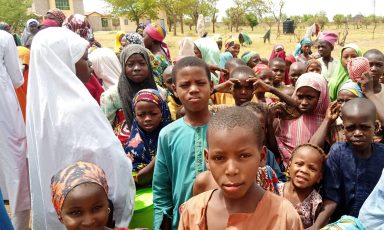To mark the International Day of the African Child, SOS Children’s Villages Nigeria has asked both federal and state governments to take real action, not just make promises, when it comes to improving the lives of children.
The group’s National Director, Eghosa Erhumwunse, made this request in a statement. He spoke about this year’s theme, “Planning and Budgeting for Children’s Rights: Progress Since 2010.”
He said it reminds us that the country’s future depends on how well we care for and plan for our children.
He added, “Every naira we spend on children’s health, education, food, and safety helps build a stronger future for Nigeria.
”Between 2021 and 2025, the national budget for nutrition in Nigeria grew by over 700 percent, showing that the government is paying more attention to children’s health. Spending on education and health also went up at different times.
But SOS Children’s Villages pointed out problems with how the money is used. For example, in 2021, even though ₦742 billion was set aside for education, only ₦127 billion was actually used for building and improving schools. Also, the percentage of the national budget given to education changed a lot—from 6.5% in 2020 to just 5.98% in 2024.
Erhumwunse said, “The problem isn’t just how much money is planned, but how much is really given out and used properly.” The same issue affects health and social programs, which often don’t get enough funding to reach people in local communities.
Still, SOS Children’s Villages Nigeria praised the government for some positive steps. These include making budgets more open to the public, tracking spending on children’s services, and setting up a National Child Rights and Welfare Commission.
The organization said, “This new Commission is very important. It will help different sectors work together, improve monitoring, and make sure children’s rights are respected.
”To make a real difference, SOS Children’s Villages is calling on the government to increase funding for children’s health, education, and safety. They also want clear budget lines for children’s services, full and fair use of the funds, and for the new Commission to be fully up and running by the third quarter of 2025.
Erhumwunse concluded, “The Day of the African Child should not just be about celebration. It should remind us that our country’s future depends on how well we treat our children today. Nigerian children are strong and full of promise—we owe them more than just words; we owe them real results.”


